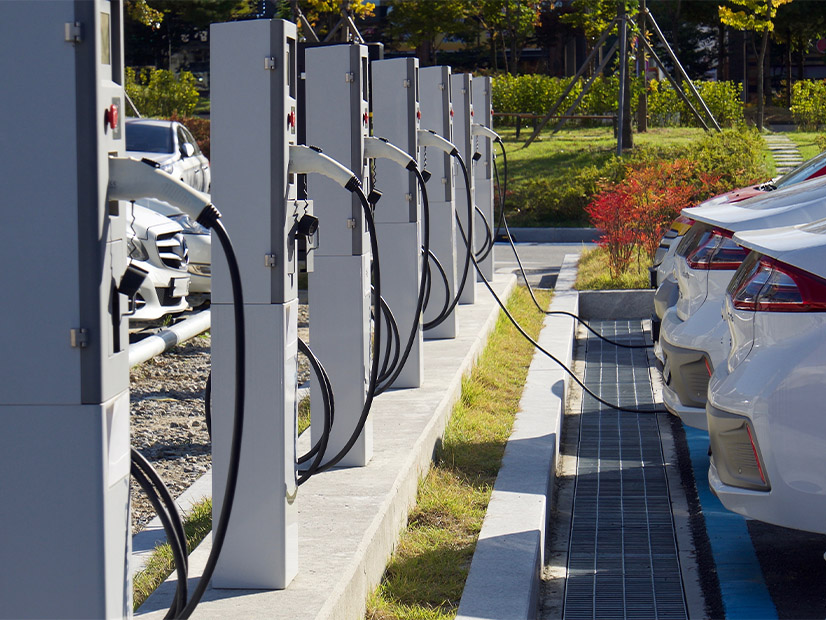The funding will put a total 7,500 EV chargers at locations, from multifamily housing developments in New Jersey and Maryland, to public libraries in California to remote villages like Haines, Alaska.
The Department of Transportation has rolled out the first round of funding for EV chargers to be located in remote, tribal and low- and moderate-income communities across the nation, with $623 million from the Infrastructure Investment and Jobs Act going to 47 projects in 22 states and Puerto Rico, according to a Jan. 11 announcement.
The funding will put a total of 7,500 EV chargers in a range of locations, from multifamily housing developments in New Jersey and Maryland to public libraries in California to remote villages like Haines, Alaska (2023 population: 1,951), which currently has no chargers.
The North Central Texas Council of Governments will get $70 million for up to five hydrogen fueling stations for medium- and heavy-duty freight trucks at sites in Dallas-Fort Worth, Houston, Austin and San Antonio, according to the announcement.
The awards are the first being made from the Charging and Fueling Infrastructure (CFI) Discretionary Grant Program, which received $2.5 billion from the Infrastructure Investment and Jobs Act. The program is the competitive counterpart of the IIJA’s $5 billion National Electric Vehicle Infrastructure (NEVI) program, which provides all states with yearly, formula-based allocations to put EV chargers on major interstate and state highways.
The first NEVI chargers went into operation in Ohio and New York at the end of 2023.
CFI is aimed at filling in the gaps at the local level, working with organizations that might not qualify for NEVI or other funding, in line with President Joe Biden’s Justice40 initiative, which is intended to ensure that 40% of the benefits of all federal funding go to disadvantaged communities.
According to DOT, more than 70% of the projects receiving funds will be in disadvantaged communities. The projects also must comply with DOT’s technical standards for federally funded chargers, which require that all charging stations have at least four ports and that direct current fast chargers be at least 150 kWh. Public chargers must be available 24/7 and accept all major credit or debit cards.
“From my time working at the local level, I know that finding electric vehicle charging in a community is different from finding charging along highways,” Deputy Secretary of Transportation Polly Trottenberg said in the announcement. The CFI-funded projects “will provide Americans with convenient, straightforward charging options in their communities.”
Energy Secretary Jennifer Granholm hailed the awards as “bringing an accessible, made-in-America charging network into thousands of communities while cutting the carbon pollution that is driving the climate crisis.”
“Every community across the nation deserves access to convenient and reliable clean transportation,” she said.
Expanding the U.S. charging network is widely seen as critical for building consumer confidence in and sales of EVs. The DOT estimates more than 4 million electric cars, SUVs and pickup trucks are on the road in the U.S., while the number of charging points has grown 70% since Biden took office. Private investments in the EV and charger supply chain have grown by more than $155 billion, according to administration figures.
The DOT has yet to announce when it will open applications for the next round of CFI funding.




